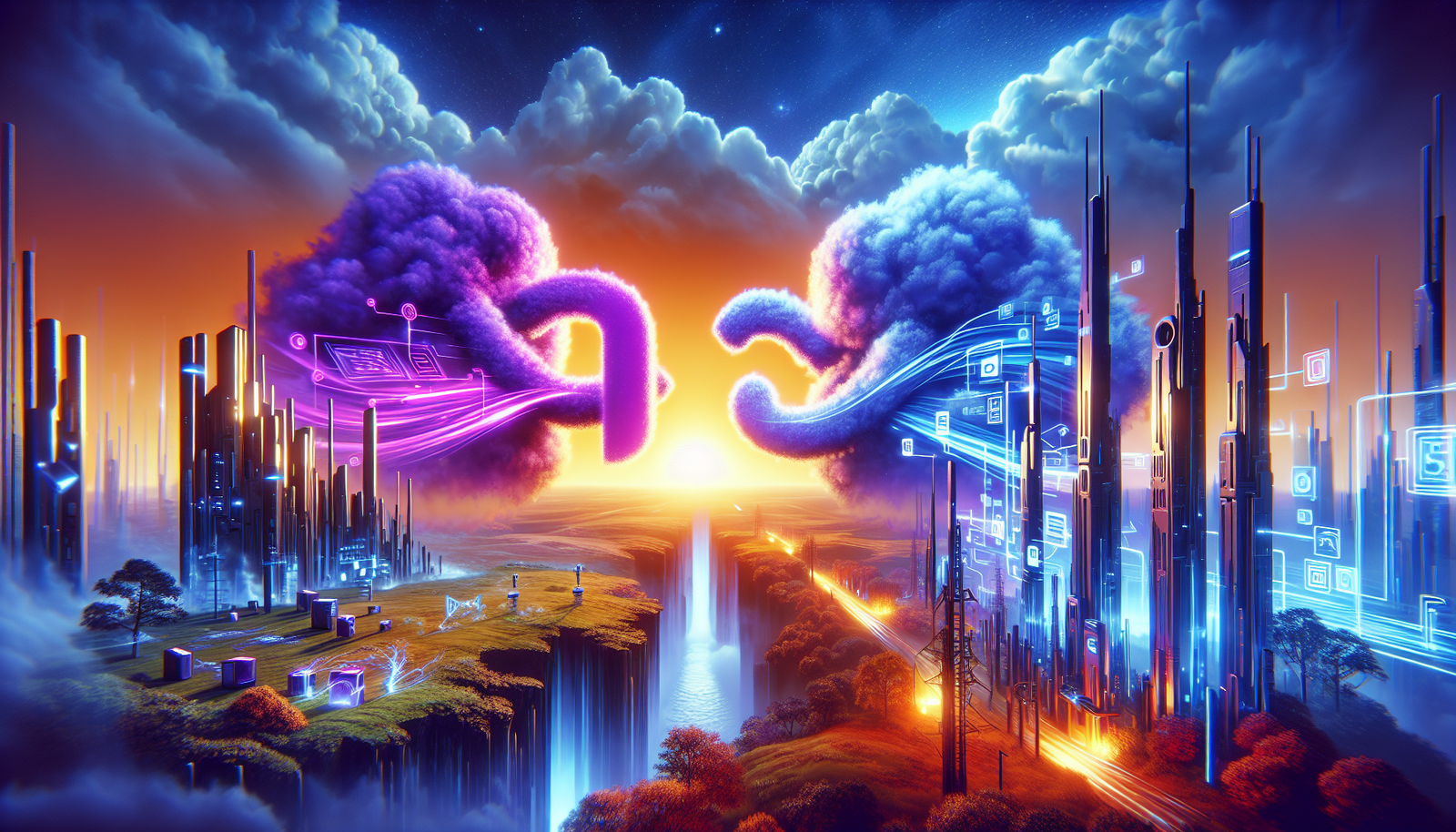The technology titans, Google and Microsoft, are engaged in a fierce battle in the world of no code agents. These innovative tools push the boundaries of artificial intelligence, simplifying access to advanced features for a wide range of users. As this field rapidly emerges, optimizing business processes becomes a crucial issue.
Experts agree that dominance depends not only on technology but also on accessibility, flexibility, and model integration. Google bets on the orchestration ability of its platforms, while Microsoft seeks to attract users with intuitive solutions. This intense rivalry shapes the future of intelligent applications, redefining efficiency standards while projecting unprecedented ambitions.
The competitive landscape of no code agents
Google and Microsoft compete in the field of no code agents, a rapidly expanding segment in the realm of artificial intelligence. Each company has developed tools to enable users to create conversational agents without requiring technical skills. This development meets a growing need for accessible and efficient solutions, promoting the automation of business operations.
The tools of Google and Microsoft
Google stands out with its Vertex AI Agent Builder, which focuses on seamless API integration and facilitates connection to various third-party tools. This solution requires a low level of skill to configure agents, catering to both technical and non-technical users. Meanwhile, Microsoft’s platforms, namely Copilot Studio and Azure Agent Service, are designed with freedom of action while offering a range of options suited to developers and professionals. This duality allows for a wide spectrum of users to be covered.
Integration and orchestration capabilities
The success of these two solutions largely hinges on their ability to orchestrate personalized experiences. Vertex AI Agent Builder excels in this regard, allowing for the orchestration of conversational agents distinguished by its efficiency. Google, through its suite of tools Agentspace, has also increased connectors to maximize interoperability across different platforms.
Microsoft, with its Copilot Studio, has designed an intuitive environment, enabling non-technical users to connect their agents to various databases, such as Salesforce and SAP. This approach emphasizes ease of access and operational efficiency, essential aspects in today’s professional world.
The challenges of no code
The solutions offered by Google and Microsoft are still in the optimization phase, as their profitability remains a major issue. A report from the AI Builder firm highlights that the no code tools of hyperscalers have not yet demonstrated their economic effectiveness compared to open source frameworks like LangChain. This observation underscores the need for these companies to improve their approach to capture a booming market.
The role of AWS in the competition
AWS, while temporarily lagging, continues to play a central role in the landscape of no code agents. The company benefits from a vast user community that provides ongoing support and in-depth documentation. The Amazon Bedrock AI offering, although primarily aimed at developers, also provides interesting features for those looking to create customized agents.
A look at the future
The dynamics between Google and Microsoft will evolve as new entrants like Dev Agents, led by former tech leaders, begin to make a name for themselves. This startup recently raised funds to develop artificial intelligence agents tailored to specific market needs.
The race towards process automation through intelligent agents is just beginning, and hyperscalers must ramp up efforts to meet the growing needs for integration, customization, and user performance.
FAQ: The giants’ battle – Google and Microsoft in the realm of no code agents
What are the main no code tools developed by Google and Microsoft for creating agents?
Google offers Vertex AI Agent Builder and Agent Designer, while Microsoft provides Copilot Studio and Azure Agent Service.
How do Google’s no code agents differ from those of Microsoft?
Google’s agents, notably Vertex AI Agent Builder, are known for their ability to automatically read APIs and integrate third-party sources, while Microsoft’s focus is on seamless integration with its other cloud services.
What essential features does Amazon offer in the field of no code agents?
Amazon offers Amazon Bedrock AI, which is geared towards developers with SDKs for the integration of custom tools, but it also appeals to a more technical community.
Are the no code solutions offered by the giants profitable?
Currently, studies show that the no code solutions of hyperscalers are not yet profitable, as open source alternatives like LangChain can offer equivalent or better solutions.
What does the competition between Google and Microsoft in the no code agents field entail?
The competition focuses on the innovation of the offered tools, their efficiency, and the ability to integrate features smoothly within the existing cloud ecosystem.
What are the future prospects for the no code agents of these companies?
Companies continue to refine their approaches and improve orchestration as well as tool integration to further automate the agent creation process.
How can companies choose between Google and Microsoft solutions for their no code agent needs?
The choice depends on the company’s specific needs, considering the integration required with existing tools, ease of use, and available features.
What challenges do users face when creating no code agents with these tools?
Users may encounter the complexity of articulating the reasoning of the LLM and the action, which is often poorly described in the offered solutions.






